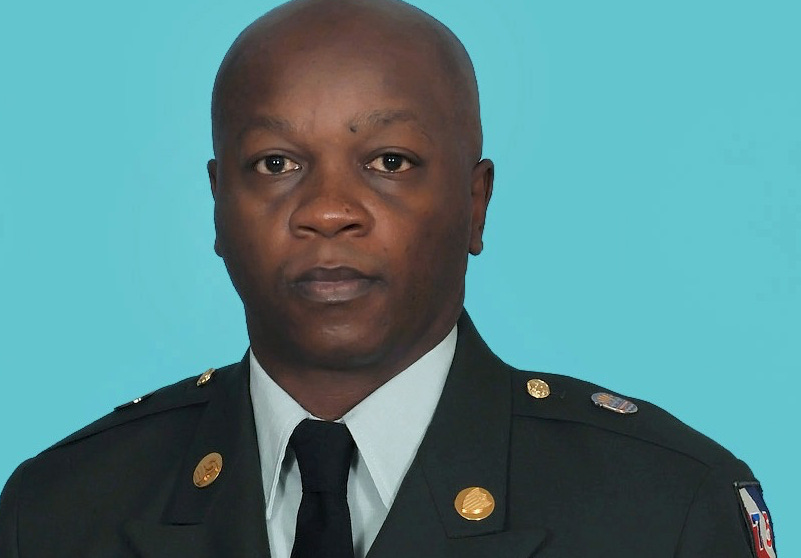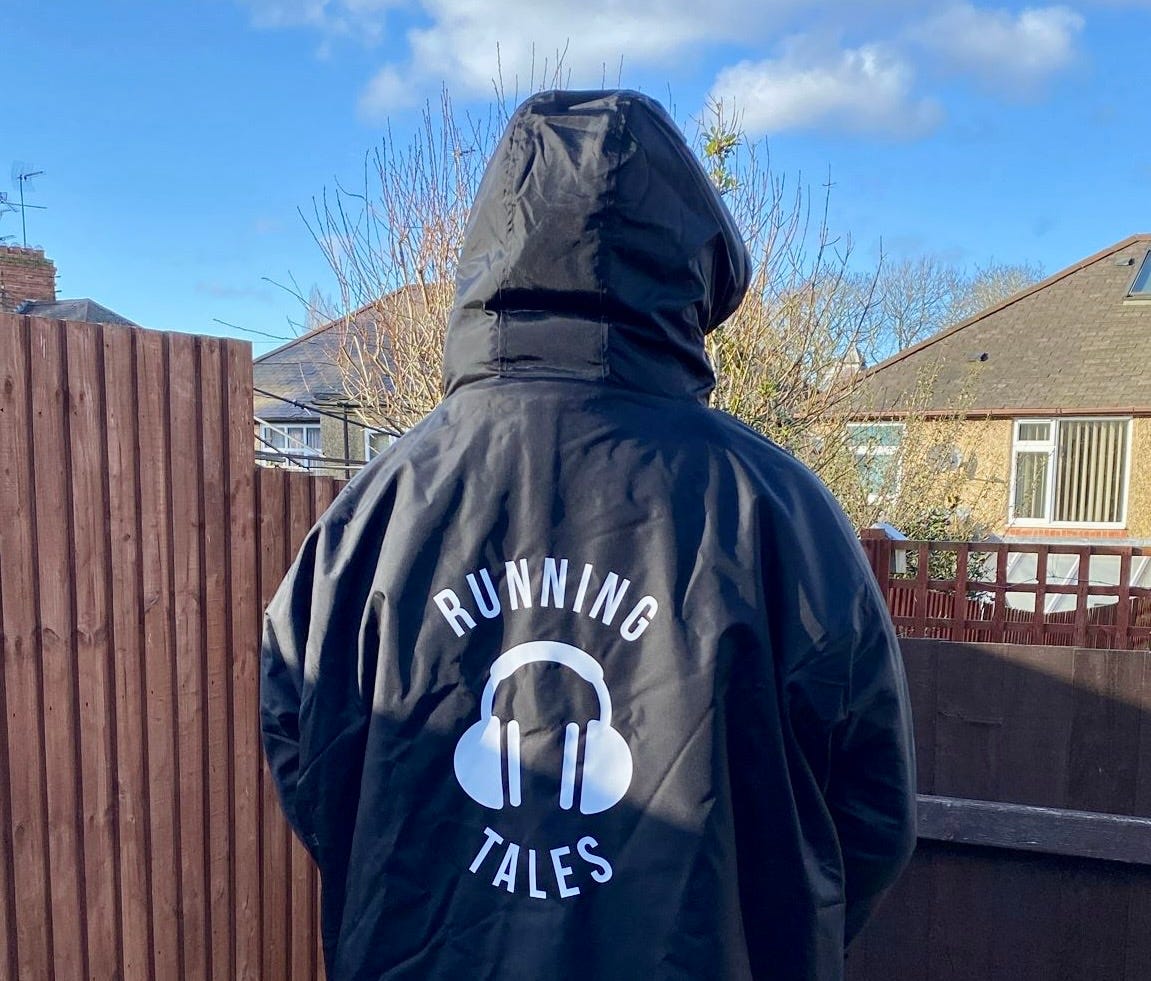Olympic trailblazer should be given posthumous gold medal, biographer says
Tidye Pickett became the first African-American to run at the Olympics - but only after being denied the chance of a gold medal and suffering racist hazing
The planning, promotion, podcast recording and writing of this article took five to six hours of work. Please back what we do by subscribing to Running Tales and considering ‘buying us a coffee’ ☕️ Thank you 🙏
The biographer of the first African-American woman to compete at the Olympics believes she should be given a posthumous gold medal.
Dr Terrence House said Tidye Pickett, who ran in the 1936 Games in Berlin, deserves to be honoured after she was left out of the gold medal winning US 4x100m team in 1932.
Pickett and fellow African American, Louise Stokes, were dropped from the team despite having run faster times than the white women who were picked.
US Army veteran Dr House, who first met Pickett when she was his school Principal, wrote The Olympic Omission in an attempt to raise awareness about her story of rejection and resilience.
Stokes and Pickett had both competed at the 1932 Olympic Trials in Evanston, Illinois, with the former finishing fourth and Pickett coming sixth.
That result meant they qualified for the 4x100 relay pool of eight athletes, from which the team would be picked. Stokes’ fourth place finish meant she would be on the team, while Pickett qualified as an alternate.
Despite being incredibly young at the time - Pickett was just 17 and Stokes 18, the pair were subject to repeated racist abuse.
During a train journey from Denver to Los Angeles, where the 1932 Games took place, they were given a separate room near a service area and told to eat dinner in their rooms rather than the banquet hall with the rest of the delegation.
Later in the journey, teammate Mildred ‘Babe’ Didrikson tossed a pitcher of ice water over the pair as they slept in their bunks.
Worse was to come. Once in LA, Stokes and Pickett were able to practice with their team during the day but were left in their dorms at night while the other runners ate in a whites-only dining room.
When the final team was selected, the duo were replaced by two white athletes who had performed slower than them at the trails. They were forced to watch from the sidelines as the team they had earned the right to be part of won Olympic gold.
Dr House said: “Tidye Pickett was replaced by a woman that didn't even qualify.
“I would like to see them award her with an Olympic gold medal. I think that would be more fitting than anything and show the world how far we've come not just as a nation, but as a good global entity.
“To have the gold medal presented to her family and her descendants would be absolutely wonderful.”
Pickett’s own Olympic story had a mixed ending.
In 1936, she was to become the first African-American woman to compete in the Games, taking part in the 80-meter hurdles in Berlin aged just 21.
Prior to the Olympics, she has set an unofficial world record of 48.6 seconds for the 400 metres while running the opening leg of a Chicago Park District relay event, before coming second in the 80 metres while running hurdles in the trials.
She would eventually reach the semi-finals of the event, before more bad luck struck. After hitting the second hurdle in the race, she broke her foot and was unable to finish.
The onset of the Second World War meant the Games didn’t take place in either 1940 or 1944 and by the time the 1948 Olympics took place it was too late for either Pickett or Stokes.
The school Principal with the Olympic secret:

Dr House’s own memories of Pickett date back to a very different time, long after her trailblazing Olympic performance.
Known by then as Tidye Phillips, she was the demanding elementary school Principal who corrected his errant manners and attire when he was a young man.
As a third grade student at what was then East Chicago Heights elementary school in Illinois, young Terrence heard rumours his teacher had once been a track star.
“Of course, I didn't believe them because she was the same age as my grandmother,” he said.
“When I met her, that was my first encounter with self improvement and taking pride in my appearance and education.
“But I did my due diligence as far as research was concerned, and sure enough, she was an Olympic track star.”
Dr House said it was only later that he came to feel pride at having been taught by an Olympic legend: “At school, she was very feisty and she was very direct and she didn’t play.
“She used to line me and my friends up and if our shirt was untucked, she'd make us tuck our shirt in and she would take this comb and comb my hair and smell our armpits to make sure we weren't smelly.
“She wanted us to look our best and be our best and perform at a very high level.
“At the time, I said, ‘oh, I can't stand this lady’. But it turns out, those are all things that I kept in the back of my mind. Growing up in such an impoverished area, she planted the seeds for me to move forward in life.”

The life skills he learnt under the watchful eye of Principal Phillips were to prove vital to him during an Army career that saw him serve in Iraq.
He told the Running Tales Podcast: “If it wasn't for Tidye Pickett, you wouldn’t have had Flo-Jo or Sha'Carri Richardson or Jackie Joyner-Kersee, and all of great female athletes of the 21st century.
“But she was more than that. She was an educator, a mentor and she was like a mother to us.”
‘She never cried woe is me, she never even made mention of how she was mistreated’:
Born in 1914 in Chicago’s south side years before the civil rights movement caught hold in America, Tidye Pickett was no stranger to discrimination long before her treatment at the hands of Team USA.
Dr House said: “In 1914, the landscape was very different. The discrimination and the treatment of black people back then was much more harsher and much more wicked than it is now.”
One advantage she did have was living across the street from Washington Park, a place that often held races for boys and girls.
The young Pickett, who Dr House described as having great “agility, speed and tenacity” won many of these events.
Eventually, she attracted the attention of John Brooks, a University of Chicago athlete and future Olympic long jumper, who became her coach.
The pair worked together right up until the 1936 Olympics, but after that Pickett left athletics behind to embark on a 23 year teaching career.
Dr House said despite the injustice she faced, she “never talked about the Olympics in a negative way.
“She never cried woe is me or anything like that. Matter of fact, she never even made mention of how she was mistreated.
“But she was very adamant on self improvement and self pride and appearance and all those things.
“I think the fact she didn't carry any grudges, despite what happened to her, was one of the more remarkable things about her.
“She showed us how in spite of adversity and in spite of injustice, we have to keep on.
“We have to keep pushing and being vengeful or angry is not the way.”
Asked if Tidye Pickett gets the recognition she deserves as an athlete, Dr House is unequivocal: “No, not even close.
“You read the stories and Jesse Owens is always there, his story is rightly well documented.
“But when you mention Tidye Pickett and Louise Stokes, many people have never heard of them.
“I believe she deserves to be celebrated for all her accomplishments, not only in track and field, but in areas of education and race.
“Every single day, I think about her strength, her endurance and her courage.”
Listen to Dr Terrence House on the Running Tales Podcast:
Listen on Spotify and Apple Podcasts, or wherever you listen to your podcasts. Just search for the Everyday Athlete Podcast Network, Please remember to give us a positive rating or review.
Support Running Tales:
Please help us keep producing Running Tales across Substack and in podcast form:
Also on Running Tales:
Check out our merchandise:
Be a part of the Running Tales revolution with our new merchandise range - including our new robes.
We’ve got buffs, caps, cups, t-shirts and hoodies - why not complete your next run as an everyday runner by doing extraordinary things?









